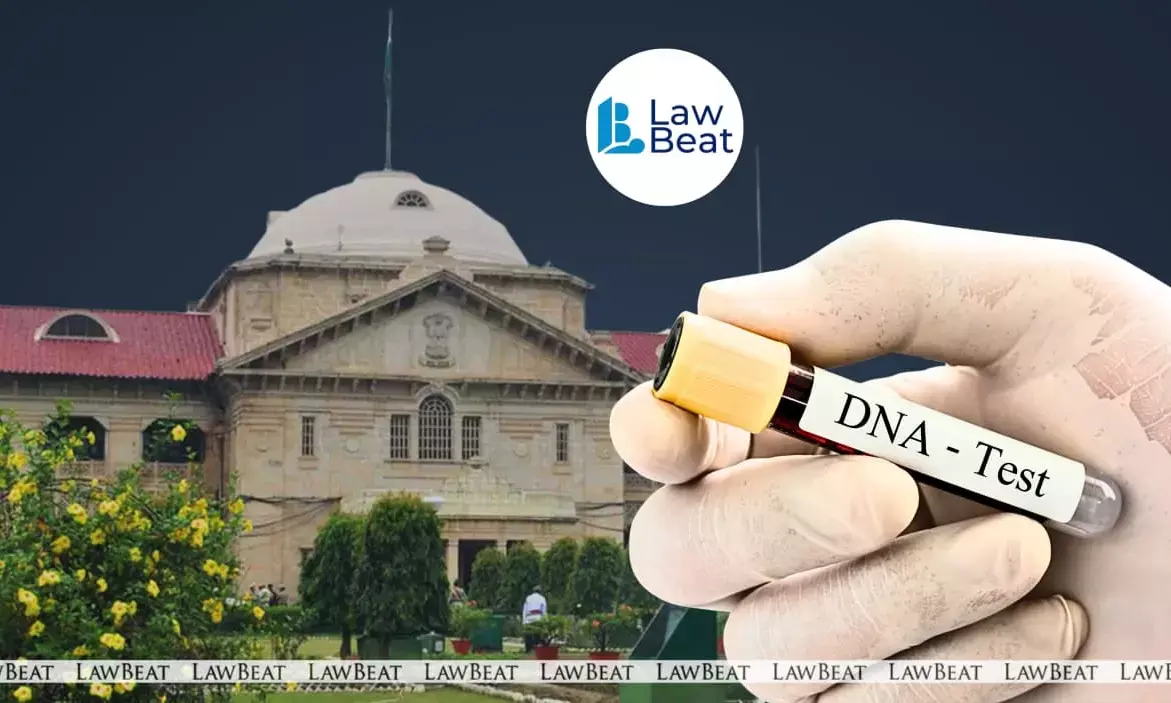Allahabad HC Declines DNA Test in Domestic Violence Case

Allahabad High Court upholds legitimacy, rejects DNA test plea of daughter in domestic violence case
The Allahabad High Court recently refused to order a DNA test to determine the paternity of a girl born to a Varanasi couple, upholding concurrent findings of two courts below that the husband had not produced any material to rebut the legal presumption of legitimacy attached to a child born during the subsistence of marriage.
The bench of Justice Chawan Prakash dismissed a criminal revision filed by a man, who had challenged orders passed by the Special Chief Judicial Magistrate on January 18, 2021, and the Additional Sessions Judge on October 7, 2021. Both courts had rejected his application seeking a DNA test of the daughter of his wife in a domestic violence case initiated in 2015.
The couple married on April 15, 2008, according to Hindu rites. After the wedding, the mother of the child stayed for about a week at her matrimonial home and subsequently moved to her parents’ house, returning only briefly every few months. She works as a teacher and is a graduate, while the man has studied up to the High School level. According to him, she did not want to continue living with him, allegedly due to the difference in their educational backgrounds. He also claimed that she suspected him of having an illicit relationship with his sister-in-law.
The woman gave birth to a daughter on December 17, 2012. The man asserted that he and his wife had last cohabited on May 20, 2011, and therefore the child was not born from their relationship. He sought a DNA test before the trial court while responding to her domestic violence complaint. The magistrate rejected the request, and the man’s appeal before the Additional Sessions Judge also failed. He then approached the high court in revision.
Before the high court, the State and counsel for the mother of the child argued that both courts had correctly applied Section 112 of the Indian Evidence Act. The provision establishes that a child born during the continuance of a valid marriage is conclusive proof of legitimacy unless there is clear evidence demonstrating that the spouses had no access to each other during the time when the child could have been conceived.
Court noted that Section 112 creates a strong presumption in favour of legitimacy and protects children from the stigma of illegitimacy. It emphasised that the burden lies on the person disputing paternity to clearly establish non-access or other convincing grounds. Bare allegations or assumptions are not sufficient to rebut the statutory presumption.
Court also referred to the Supreme Court’s recent decision in Ivan Rathinam v. Milan Joseph (2025), which reiterated that courts must be cautious while directing DNA tests, as such orders may infringe the right to privacy and dignity. The apex court held that a DNA test cannot be directed routinely and must satisfy the constitutional requirements of legality, necessity and proportionality. Any intrusion into personal autonomy, particularly in matters involving family relationships and accusations of infidelity, must meet a high threshold.
Applying these principles, the high court found that the husband had merely asserted that the child was not his biological daughter without producing any evidence to support a claim of non-access. It observed that both the trial and appellate courts had recorded specific findings on this aspect and had rightly concluded that no case was made out for compelling a DNA test.
Finding no illegality or perversity in the earlier orders, the high court dismissed the revision petition and affirmed the rejection of the request for DNA testing.
Case Title: Ramraj Patel vs State of U.P. and Another
Order Date: November 21, 2025
Bench: Chawan Prakash
